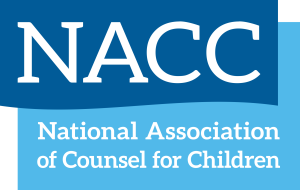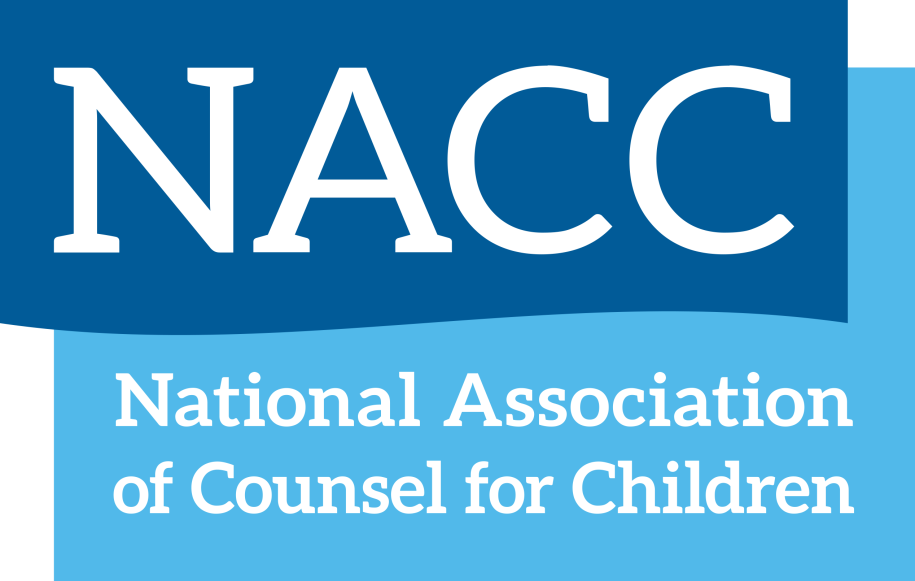
Register NOW for NACC’s Inaugural Race Equity Virtual Training Series. This 6-webinar (90 minutes each) virtual series will occur on March 1-3, 2023. The goals of this virtual training series are to:
- Connect bold and progressive ideas, concepts, and theories around race and racism to practical and concrete skills and takeaways that can be incorporated into daily practice, in and outside of court.
- Deliver concrete tips to check for and interrupt individual, attorney, judicial, and systemic bias, practice through a culturally humble and antiracist lens, and improve outcomes for youth, parents, and families who are disproportionately impacted by systems involvement.
- Advance and continue the conversation around race and racism in child welfare.
Training series sessions are designed for a national audience, expand attendees’ understanding of race equity, antiracism, and racial justice, provide practical tools and resources to support legal advocacy, and provide information and strategies for systems improvement. Webinars are applicable to attorneys who represent children, parents, agencies, and kinship caregivers, as well as multidisciplinary professionals working in child welfare.
The webinar series is $175 for NACC members and groups, $200 for non-members. For group registration, contact Daniel Trujillo at Daniel.trujillo@naccchildlaw.org. All registered attendees will receive access to live sessions and recordings of six webinars (9 hours of content) through December 2023. NACC will be seeking CLE accreditation in Colorado for this series and is willing to work with states, CIPs, and organizations seeking CLE accreditation.
Wednesday, March 1, 2023
– 12-1:30pm ET: Curb Your Bias and Racism: Protecting Parents from the Adverse Impacts of Systemic and Individualized Bias in the Child Welfare Process o Bias and racism have a detrimental impact on parents in dependency cases. Bias (implicit and explicit) can be based on race, culture, poverty, literacy level, substance use, or mental health diagnoses. Racism arises out of a notion of superiority and entitlement or dominion over another group that is perceived to be inferior. Biases and/or racism can interfere with attorneys representing their clients and skew the way providers and case managers convey information in reports and assessments, with inflammatory phrasing of allegations and misleading depictions of parents in court documents. This culminates in overburdensome tasks and incongruous services for parents, which causes us to lose sight of the issues that the parent really needs addressed and hinders the goal of family reunification. This webinar will help participants identify and reduce bias in themselves and others and learn out-of-court and in-court advocacy strategies to reduce the impact of racism. o Presenters:
▪ Diana Rugh Johnson, JD, MS, CWLS
• Judicial Council of Georgia/Administrative Office of the Courts
▪ Amber Walden, JD
• Family Law Office of Training and Education Services, LLC
– 3-4:30pm ET: African American Child Discipline: Promoting Culturally Responsive Legal and Clinical Practices o This webinar provides a framework for clinicians, child welfare workers, and legal professionals to thoroughly explore the child discipline practices of African American parents. Many African American parents are under surveillance or policed by judicial and child welfare personnel, who often subscribe to the automatic assumption that parenting while Black equals children are at risk of harm. Most African American children will undergo a CPS investigation at some point in their childhood which has been identified as the stop-and-frisk of African American families. This webinar will prepare judicial personnel and supervisors to work successfully with African American mothers and fathers when tending to the question of child discipline. Attendees will learn how to address bias, call culturally competent expert witnesses, and use disciplinary best practice factors to examine cases involving child discipline. o Presenters: ▪ Carla Adkison-Johnson, PhD • Western Michigan University ▪ E. Dorphine Payne, JD • Payne Law Office
Thursday, March 2, 2023
– 12-1:30pm ET: How Redefining Neglect Through an Equity Lens on a Systemic and Case Level Can Shift Outcomes for Children, Youth, and Families o This webinar is targeted for lawyers, judges, and child welfare staff working on the identification of neglect on an individual or systemic level, including lawyers and judges faced with real-time decisions regarding whether something should be classified as neglect or whether there may be other considerations for equity (i.e., poverty). This webinar will cover legal statutory definitions of neglect, including what those mean for families and jurisdictional trends; how to be an anti-racist defender within current legal definitions and standards; and systemic reforms that could establish more concrete legal standards. After TED Talks focused on each topic, the presenters will discuss potential next steps, being mindful of jurisdictional differences and real-time needs. o Presenters:
▪ Louis (Louie) Gasper, BA
• National Advisory Council on Children’s Legal Representation
▪ Josh Gupta-Kagan, JD
• Columbia Law School
▪ Jey Rajaraman, JD
• Family Integrity & Justice Works at Public Knowledge
– 3-4:30pm ET: Diaries of a Black Girl in Foster Care and the Truth Behind the Adultification Bias that Affects Their Black Lives o Research conducted by the Georgetown Law Center on Poverty and Inequality reveals that society perceives Black girls to appear more adult-like and not as innocent as White girls. Adultification can play a role in how child welfare providers protect and serve Black girls, increasing disparities. The presenters will explore how adultification bias may impact Black girls in the foster care system and how it may be illustrated and played out in their lives. The presenters will provide engaging activities and open conversation that provide opportunities to identify culturally competent ways to engage Black girls. o Presenters: ▪ Kaysie Getty, MSW • Center for the Study of Social Policy ▪ Amnoni Myers, MPA • Amnoni Motivates ▪ Tashia Roberson-Wing, MSW, MPA • Congressional Black Caucus Foundation
Friday, March 3, 2023
– 12-1:30pm ET: Cultural Humility in Child Welfare Cases: Through an Indigenous Lens o This webinar will provide practical skills for participants on tribal engagement and train participants how to exercise cultural humility when working with tribal children, families, and communities, all in the context of state child welfare cases. The training will focus on reimagining and humanizing Indigenous people who are overrepresented in child welfare systems nationally and providing tangible information on how attorneys can and should partner with tribes to improve outcomes for all parties in child welfare cases. Participants will learn how to examine their own lens on child welfare practice, compare it with an Indigenous worldview (understanding all tribes are sovereign and unique), and how to shift the paradigm in which they are determining success in child welfare cases. o Presenters: ▪ Michelle Castagne, JD • California Tribal Families Coalition ▪ Kimberly Cluff, JD • California Tribal Families Coalition ▪ Geneva Shaw, MSW • California Tribal Families Coalition
– 3-4:30pm ET: Ending The Unnecessary Destruction Of Black Families o Rooted in the foundations of America’s child welfare system is the notion that to protect children and give them permanency, we must destroy their families. This webinar will directly challenge this narrative, which we believe is rooted in white saviorism, and will give advocates a new perspective on how to think about terminating parental rights. The presenters will use stories, data, caselaw, and social science research to rethink whether the system should ever terminate a child’s relationship to their parents. o Presenters: ▪ Corey Best • Mining for Gold ▪ Christopher Church, JD, CWLS • Academic Affiliate & Pro Bono Attorney
▪ Vivek Sankaran, JD, CWLS
• University of Michigan Law School

